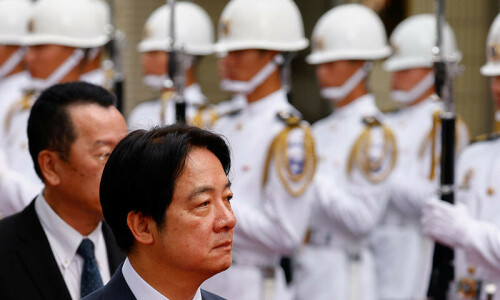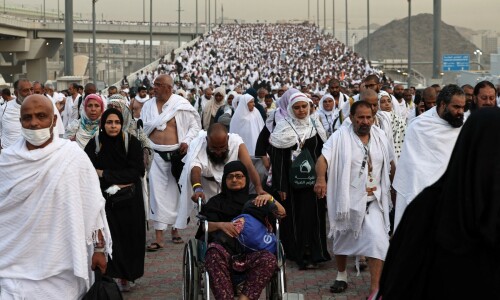ISLAMABAD, July 24: Chief Justice Iftikhar Mohammad Chaudhry said on Tuesday the scope of Article 248 of the Constitution (immunity) had been expanded through a parliamentary enactment — a protection which earlier was only available to the president and governors.
“The law-making process through which the Contempt of Court Act 2012 was passed has even hit Article 63(1g) of the Constitution (disqualification for ridiculing the judiciary), rather they have made this provision of the Constitution redundant,” observed the chief justice, who heads a five-judge bench hearing a set of identical petitions challenging the new contempt law.
On Tuesday, Advocate Hamid Khan, representing petitioner Mehmoodul Hassan, concluded his arguments. He said that through simple law-making the government had amended the Constitution.
“The critical provisions of the contempt law such as sections 3, 4, 7, 8, 11 and 12 are all in violation and ultra vires of the Constitution and, therefore, the entire law has to go,” he said and added that the entire foundation of the law was faulty because it was built on a wrong premise and on an assumption that the contempt law had to be adopted under the ordinary law and not under the Constitution.
“When the base built on misconception is hollow, the entire citadel has to collapse,” Mr Khan said and wondered how the text of the law would survive when “you take out these sections from the law”.
“The law is also way beyond the powers of parliament to regulate and, therefore, comes under the definition of usurpation,” he said, adding that parliament under the purported exercise of power of legislation had gone to the point of virtually undoing the powers of courts conferred by the Constitution.
“Now the contempt law will be left for the ordinary citizens who are being ruled because the rulers are not to be touched upon,” the counsel said, adding it militated against the concept of equality since it had created a new class of privileged people.
Justice Jawwad S. Khawaja observed that a private citizen had to be protected against the excesses of the state by the court which was reflective in the shape of the large number of writs pending in the courts, but wondered the poor had to approach the courts complaining that the state was snatching his fundamental rights.
But in this case, it was the state functionaries who would now turn up before the courts throwing a challenge to the courts to do whatever it could, Justice Khawaja lamented, saying the orders passed by the Supreme Court or the high courts against the state functionaries would now become a mere piece of paper.
The hearing will continue on Wednesday.














































Dear visitor, the comments section is undergoing an overhaul and will return soon.